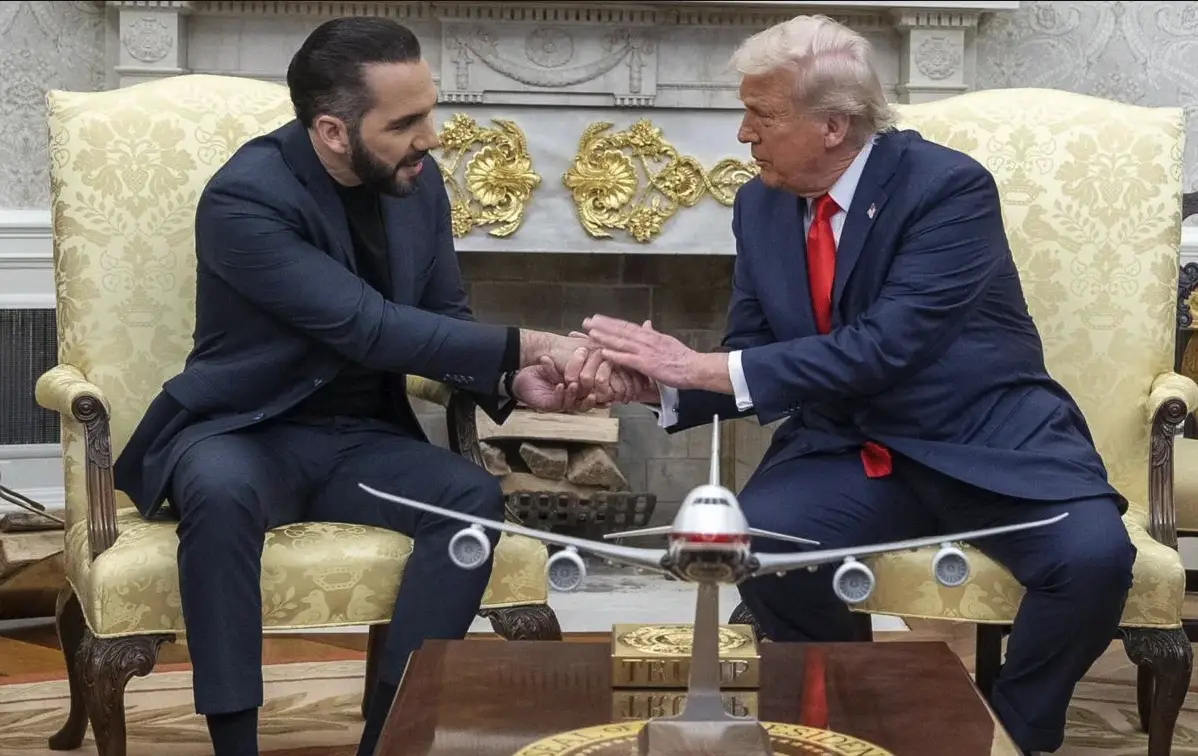Recently, the ruling Salvadoran party, Nuevas Ideas, inaugurated a political training school in Nuevo Cuscatlán. The event was headlined by Félix Ulloa, Vice President of the Central American country, and China’s ambassador to El Salvador, Zhang Yanhui. According to the Central American news portal Expediente Público, the institute was reportedly sponsored by the Chinese Communist Party (CCP), following a previous visit to Beijing by Ulloa and Xavier Zablah Bukele – leader of Nuevas Ideas and cousin of the Salvadoran president – during which several interparty cooperation agreements were finalized.
This event highlights the diversified strategies China employs to expand its influence in the Western Hemisphere. While public attention toward the Asian giant typically focuses on intergovernmental diplomacy, trade relations, or the Belt and Road Initiative (BRI), less consideration is given to the forms of cooperation carried out by various international outreach bodies tied to the CCP in Latin America.
The Czech think tank Sinopsis, which specializes in Chinese studies, notes: “Unlike many other countries, China’s foreign affairs extend beyond the jurisdiction of the Ministry of Foreign Affairs (MoFA) and transcend official state-to-state diplomacy […] This system consists of various bodies and operates under the overarching concept of total diplomacy.”
The CCP behind the scenes
According to Central American and Chinese-language media, Zablah Bukele and Félix Ulloa held a meeting in April 2024 with Liu Jianchao, Minister of the International Liaison Department (ILD) of the CCP. On that occasion, representatives of bukelismo signed an agreement with the CCP’s cadre school, securing Chinese sponsorship for the newly inaugurated Political Training Institute of Nuevas Ideas.
The ILD was established in 1951 to promote ties between the CCP and other communist parties across Asia, the Middle East, Africa, and Eastern Europe. Following the Sino-Soviet split in the 1960s, the organization turned its focus to cultivating relationships with leftist groups of all kinds, from European social democrats to liberation movements in the Global South.
Under Hu Jintao’s leadership, the ILD began adopting a pragmatic approach, fostering good relations with both left- and right-wing parties. For instance, center-right organizations like Argentina’s Republican Proposal (PRO) have maintained ties with the CCP since 2009. Xi Jinping, while maintaining this approach, has made the ILD’s operations more assertive, turning it into a key instrument of Chinese foreign influence.
Various think tanks and scholars of Chinese foreign policy have noted the quiet diplomacy exercised by the Asian giant through the ILD and other bodies. These include the United Front Work Department and the Chinese People’s Association for Friendship with Foreign Countries, which function as parallel bureaucracies to the MoFA and are characterized by opaque activities and a purported autonomy from Beijing. However, these organizations aim to connect various sectors of foreign politics and civil society with the CCP.
In particular, the ILD builds influence networks by training foreign politicians. Beyond offering training courses funded in China, the department has promoted the construction of training centers in countries such as Tanzania. In this way, the ILD seeks to forge close ties with foreign elites who, in addition to promoting Chinese soft power narratives – such as the superiority of the one-party model or the primacy of development over democracy and civil liberties – can lobby on Beijing’s behalf in agencies, cabinets, and parliaments. In this sense, Chinese support for Nuevas Ideas’ Political Training Institute marks a significant step forward in cooperation between the CCP and El Salvador’s ruling party.
The ILD’s training programs have also become spaces for transmitting authoritarian know-how. Researchers such as Lina Benabdallah and Christine Hackenesch point out that the CCP promotes the Chinese governance model to foreign elites – a model based on mass surveillance technologies, personal data storage, and internet censorship, typically provided by state-owned enterprises like Huawei. These practices are presented as alternatives for strengthening public security and internal stability, but in practice, they reinforce state control and restrict civil liberties in adopting countries.
The paradoxes of Bukelismo
The link between Nuevas Ideas and the CCP raises questions about the ideological leanings of Nayib Bukele. Just a few weeks ago, the Salvadoran president hosted U.S. Secretary of State Marco Rubio in San Salvador to seal, in Rubio’s words, “a historic agreement, the most extraordinary in the world” on migration. Suppose this event signaled El Salvador’s intent to become one of the United States’ most important regional partners. How should we now interpret the growing political cooperation with China, the U.S.’s main strategic rival?
On one hand, it is understandable that El Salvador’s ruling party seeks alignment with the CCP. The inauguration of Nuevas Ideas’ Political Training Institute, with ILD’s blessing, is another episode of authoritarian cooperation in Latin America, where a regime well-versed in repression and control transfers knowledge and resources to another with similar aims. Similar patterns have been observed in the region with Cuba, Venezuela, and Nicaragua, which collaborate among themselves and with extra-regional autocracies like Russia, Iran, and China itself.
Given this, it is not surprising that a self-proclaimed socialist regime and another linked to the Conservative Political Action Conference (CPAC) would cooperate beyond ideological differences. In fact, this has been the ILD’s hallmark in the 21st century: pragmatism in engaging with parties across the spectrum, ensuring long-term ties with various governments. This phenomenon reflects a central feature of our times: the erosion of the left-right divide in favor of a new tension between democracies and autocracies.
On the other hand, the indoctrination of Nuevas Ideas’ cadres might even be tolerable to Trump, given that some CCP perspectives align with his political agenda. The pursuit of a multipolar order that secures spheres of influence for major powers – such as the South China Sea or Greenland – as well as the promotion of illiberal models of democracy – like China’s “whole-process democracy” or the unitary executive without checks and balances – are not foreign concepts to Make America Great Again.
Based on this, Bukele may seem to have the green light to deepen his authoritarian project with Beijing’s help. As long as the PRC does not interfere with U.S. strategic interests in El Salvador – such as migration management or control of critical infrastructure – the 47th American president might remain content, regardless of China’s growing soft power in the hemisphere.
*Machine translation proofread by Janaína da Silva.













